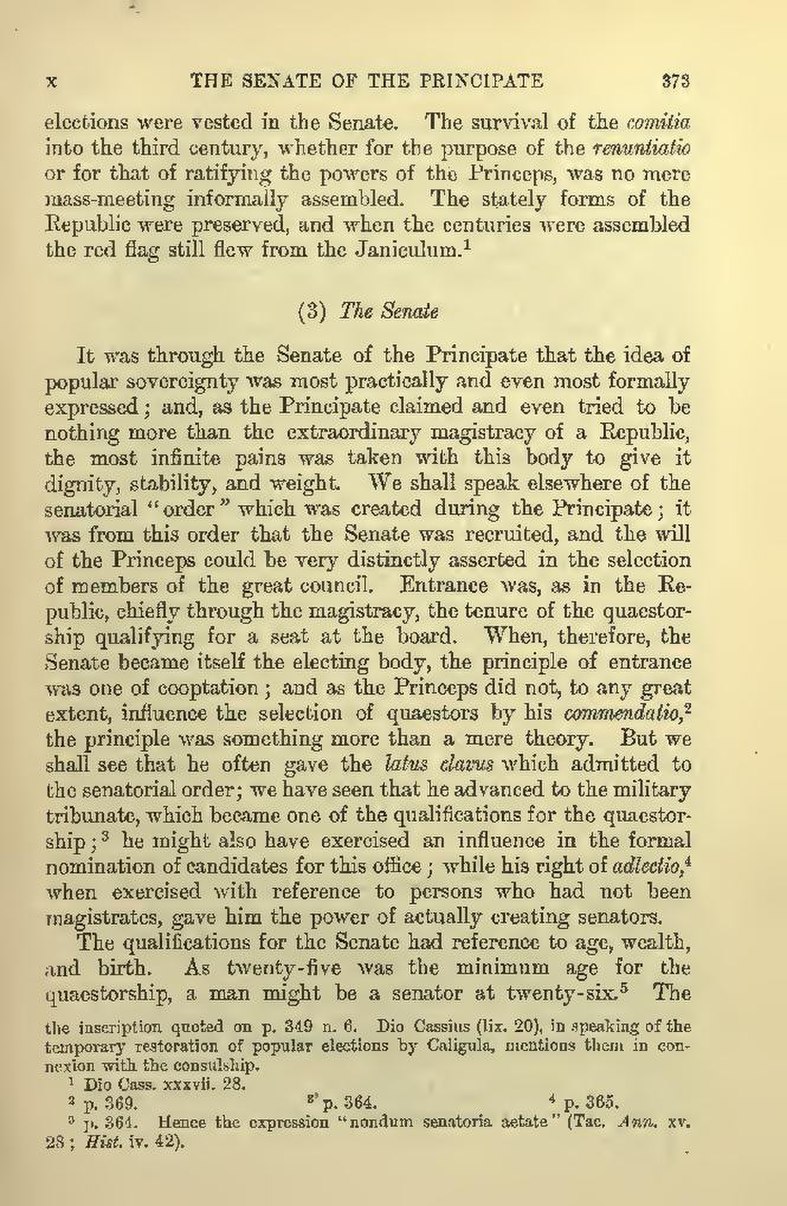elections were vested in the Senate. The survival of the comitia into the third century, whether for the purpose of the renuntiatio or for that of ratifying the powers of the Princeps, was no mere mass-meeting informally assembled. The stately forms of the Republic were preserved, and when the centuries were assembled the red flag still flew from the Janiculum.[1] (3) The Senate
It was through the Senate of the Principate that the idea of popular sovereignty was most practically and even most formally expressed; and, as the Principate claimed and even tried to be nothing more than the extraordinary magistracy of a Republic, the most infinite pains was taken with this body to give it dignity, stability, and weight. We shall speak elsewhere of the senatorial "order" which was created during the Principate; it was from this order that the Senate was recruited, and the will of the Princeps could be very distinctly asserted in the selection of members of the great council. Entrance was, as in the Republic, chiefly through the magistracy, the tenure of the quaestorship qualifying for a seat at the board. When, therefore, the Senate became itself the electing body, the principle of entrance was one of cooptation; and as the Princeps did not, to any great extent, influence the selection of quaestors by his commendatio,[2] the principle was something more than a mere theory. But we shall see that he often gave the latus clavus which admitted to the senatorial order; we have seen that he advanced to the military tribunate, which became one of the qualifications for the quaestorship;[3] he might also have exercised an influence in the formal nomination of candidates for this office; while his right of adlectio,[4] when exercised with reference to persons who had not been magistrates, gave him the power of actually creating senators.
The qualifications for the Senate had reference to age, wealth, and birth. As twenty-five was the minimum age for the quaestorship, a man might be a senator at twenty-six.[5] The
- [Footnote: the inscription quoted on p. 349 n. 6. Dio Cassius (lix. 20), in speaking of the
temporary restoration of popular elections by Caligula, mentions them in connexion with the consulship.]
